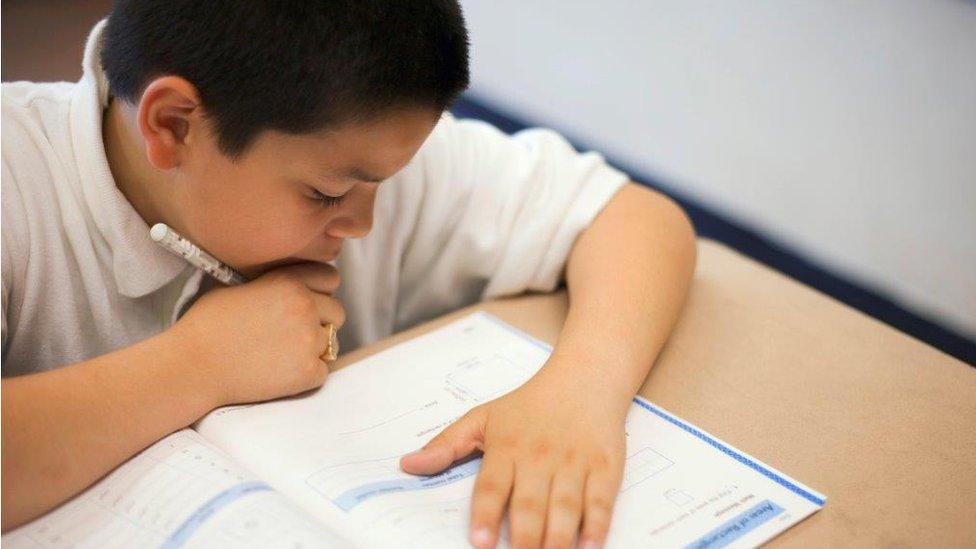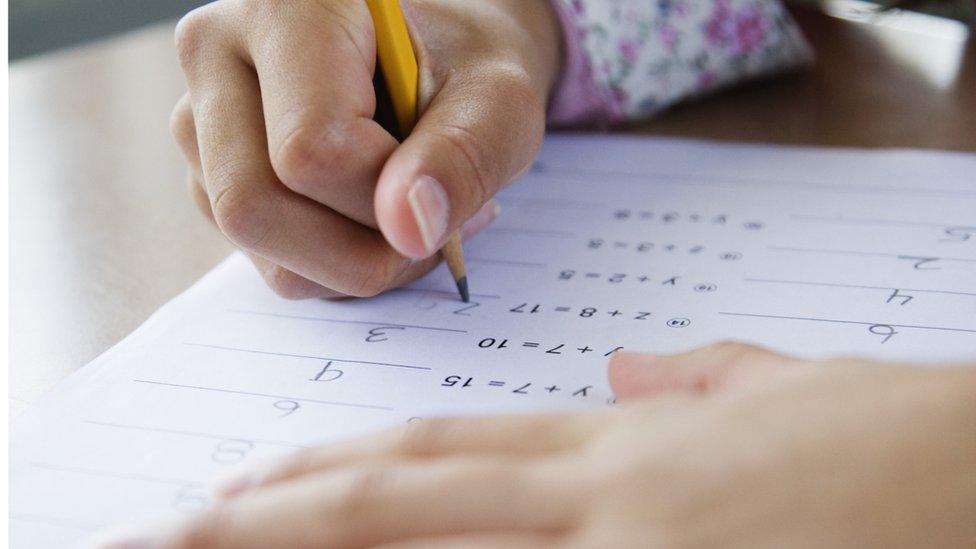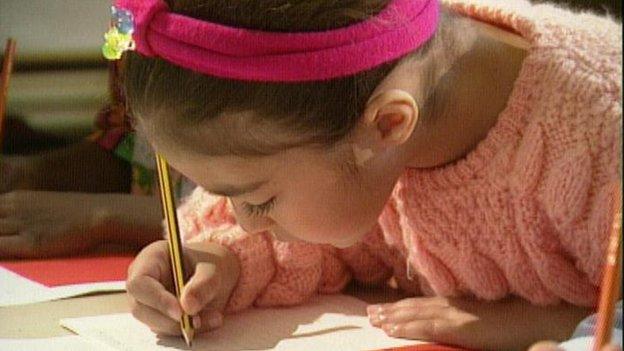London pupils strongest in primary tests
- Published

There was a wide regional variation in this year's primary test results
London pupils outperformed the rest of England in this year's tougher primary school tests, with a 28 percentage point gap between the best and worst performing local authorities.
In the London borough of Richmond, 67% of 11-year-olds reached the required standard in reading, writing and maths, according to provisional results.
But only 39% of 11-year-olds in Peterborough met the standard.
Head teachers' leader Russell Hobby said it indicated a system in chaos.
New system
Schools minister Nick Gibb said the majority of pupils had performed well, adding that he wanted this success "to be the standard".
This year's tests, taken by 11-year-olds in England in May, were more demanding than those in previous years and based on a new curriculum.
Overall, just over 53% of children in state-funded schools met the grade in all three sets of tests.
In 2015, 80% met the standard - but those figures are not regarded as being comparable because they were under the previous system that was dropped this year.
Last year, under the old system, the gap between the highest performing areas, at 90%, and the lowest, at 73%, was narrower than this year.
The detailed provisional figures for this year, external show the highest performing local authorities concentrated in London, and parts of the North East and South East.
The poorest performing are in the West Midlands, Yorkshire and the Humber, the East Midlands and East of England.
This is a similar spread to that seen in recent years, according to the government statistical release, which also points out that that there was a small number of local authorities with "more extreme values".

Making the grade by region
North East 56%
North West 52%
Yorkshire and The Humber 49%
East Midlands 50%
West Midlands 49%
East 52%
London 57%
South East 54%
South West 51%


Head teachers fear this year's primary school results are too unreliable to be used for league tables
Mr Hobby, general secretary of the National Association of Head Teachers said the results were still provisional but the wide variation between local authorities suggested a system "characterised by chaos and confusion".
In May the NAHT urged the government to cancel publication of this year's primary school results in England, warning of "serious mistakes" in the introduction of the new system which would make the results "unpredictable".
Mr Hobby said today's figures bear out concerns that the changes were "last minute" and "ill-thought out".
"The government should work with the profession to create a primary assessment system that works for pupils, teachers, school leaders and parents," said Mr Hobby, who also warned that data for individual schools, due to be published in December, could be "misleading".
Mr Gibb said the more rigorous curriculum and tests were designed to "build a country that works for everyone so that all children, regardless of background or ability have the opportunity to fulfil their potential".
"These figures show that many schools and local authorities have risen to the challenge and have delivered high standards but we want that success to be the standard everywhere.
"The government's objective is to extend that opportunity so every child has the excellent education they deserve," said Mr Gibb.
- Published5 July 2016

- Published25 May 2016

- Published10 December 2015

- Published27 August 2015
